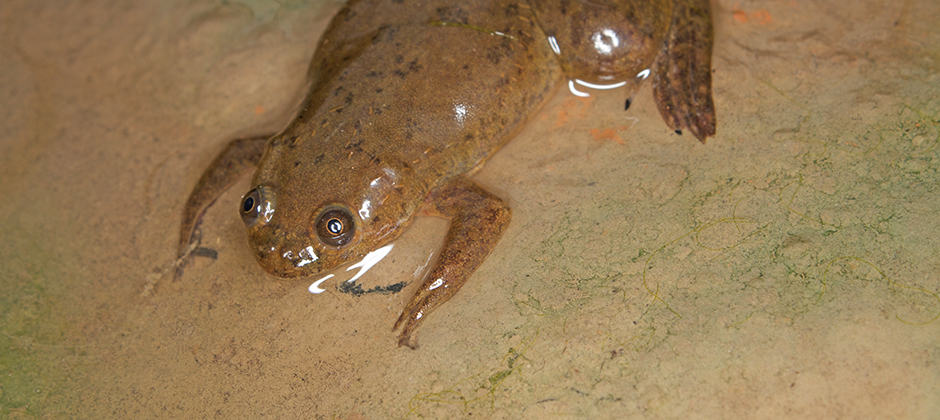Share this article
Cooler temperatures make for better frog swimmers
When frogs are reared in cooler temperatures, their nervous system develops in a way that makes them better equipped to escape predators, researchers found.
Researchers at the University of California, Davis already knew that frogs grow at different rates depending on the temperature of the environment — slower at colder temperatures and quicker at hotter temperatures, but “nobody had really looked at how that affects the nervous system in particular,” said Laura Borodinsky, a professor at the school of medicine at UC Davis and senior author on a study published in Current Biology.
Borodinsky and her colleagues looked at the neurons of spinal cords of African clawed frogs (Xenopus laevis) under both colder and warmer temperatures. They tested the embryonic development of neurons, a process that relies on transient changes in calcium as the cells develop into different types of neurons.

Temperature can alter the developing nervous system of frogs. ©Peter Dasilvia, UC Davis
While the team had hypothesized that warmer temperatures would cause an increase in calcium transients in frog embryos, they actually found the opposite. It was the cold temperatures that increased the frequency of transient peaks in calcium in spinal cord neurons of frog embryos. These increases, they found, correlated with them having more neurons connected with movement for the ability of the larvae to swim around.
“When we test how they react to gentle touch, assessing the frog larva response for escaping potential danger, [larvae grown at cold temperatures] escaped faster and more efficiently than ones grown at warm temperatures,” Borodinsky said. If potential danger, such as a predator, appears, the neurons they developed at cooler temperatures allow them to respond better, researchers found. Not only did the frogs have better movement response, she said. They also had more muscle mass.
This could have implications in the face of climate change, Borodinsky said. “We think, at least, this study demonstrates the environment affects the way the nervous system of the frog embryo develops,” she said. “Eventually a sudden change in climate or in the environment in general may have a big impact in frog development.”
Header Image: African clawed frogs reared in cooler temperatures develop neurons that help them deal with predators. ©Brian Gratwicke








